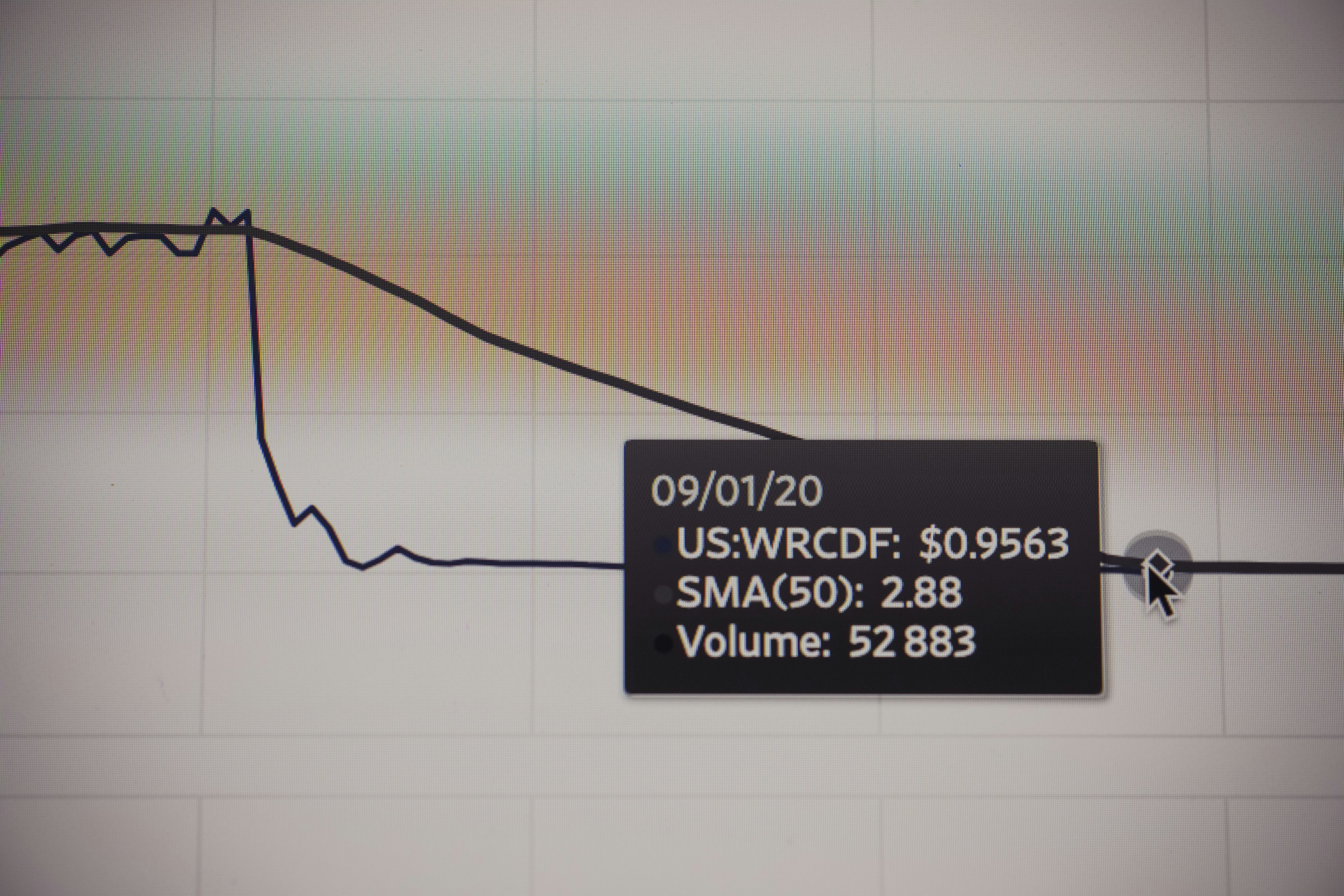Market Value 101: Everything You Need to Know
Market Value 101: Everything You Need to Know

Understanding the concept of market value is crucial in various aspects of business and finance. Market value refers to the estimated worth of an asset or investment in the current market. It is key in determining investments' profitability and viability and making informed financial decisions.
Understanding Market Value
Understanding the market value and its determination is essential for anyone buying, selling, or investing in assets. It provides insight into the potential returns and risks of different financial instruments and properties.
Importance of Market Price
The market price of an asset is closely related to its market value, as it reflects the current supply and demand dynamics. Knowing the importance of market price enables investors to gauge whether an asset is overvalued or undervalued.
Calculating Market Value
Calculating market value involves various methods, such as discounted cash flow analysis, comparative market analysis, and appraisals. These methods help determine the fair value of an asset based on its income potential, comparable sales, and physical characteristics.
What is Market Value?

Market value refers to the estimated worth of an asset or property in the current market. Factors such as supply and demand, economic conditions, and the property's physical attributes determine market value. Calculating market value is crucial for making informed financial decisions and understanding the true worth of an investment.
Definition of Market Value
Market value is the price at which an asset would trade in a competitive auction setting. It represents the highest price a buyer would be willing to pay and the lowest price a seller would accept. This value constantly changes based on market conditions and buyer/seller perceptions.
Factors Affecting Market Value
In the ever-churning gears of the economy, market value acts as a crucial compass, indicating the perceived worth of an asset, be it a company, a stock, a piece of real estate, or even a rare baseball card. This perceived worth is not set in stone but rather an intricate dance influenced by many factors. Here's a breakdown of the key players that shape market value:
Fundamentals
- Financial Performance. A company's financial health is a significant determinant of its market value. Investors closely examine profitability, revenue growth, debt levels, and asset strength to assess a company's future earning potential.
- Industry Outlook. A company's industry's overall health and growth prospects significantly impact its market value. Companies in booming industries with high barriers to entry tend to command higher valuations.
- Management Strength. A company's management team's experience, vision, and leadership capabilities play a crucial role in inspiring investor confidence and shaping future success. Strong leadership can translate to a higher market value.
Market Sentiment
- Investor Psychology. Investor optimism or pessimism can significantly swing market value. Positive economic data, strong earnings reports, or exciting new product launches can boost investor confidence, driving market value. Conversely, negative news or economic downturns can trigger sell-offs, causing market value to plummet.
- Interest Rates. The prevailing interest rate environment can influence market value. Lower interest rates make stocks and other assets more attractive than bonds, potentially pushing market values higher. Conversely, rising interest rates can entice investors towards safer options like bonds, putting downward pressure on market value.
Supply and Demand
- Liquidity. The ease with which an asset can be bought or sold plays a role. Highly liquid assets with a readily available pool of buyers tend to have more stable market values. Less liquid assets, like a private company or a unique piece of art, can be more susceptible to market fluctuations.
- External Events. Unforeseen events like global pandemics, political crises, or natural disasters can disrupt markets and cause significant swings in market value across various sectors.
Other Considerations
- Brand Reputation. A strong brand reputation associated with quality, trust, and innovation can enhance a company's market value. Conversely, negative brand associations can lead to a decline in market value.
- Dividends and Growth Potential. Companies that offer regular dividend payouts or demonstrate high growth potential are often seen as more attractive investments, potentially commanding a premium market value.
Understanding these factors empowers investors to make informed decisions and businesses to strategize to maximize their market value. Remember, market value is a dynamic concept that constantly evolves based on the complex interplay of these forces.
Importance of Market Value in Real Estate
Understanding market value is essential for buyers and sellers in real estate transactions. For sellers, it helps set a realistic asking price, while for buyers, it ensures they are not overpaying for a property. Additionally, lenders use market value to determine loan amounts for potential buyers.
Now that we better understand what is market value and its importance in real estate, let's explore how we can calculate this crucial metric to make informed financial decisions.
Calculating Market Value
Several methods can be used to calculate market value. One common approach is the income approach, which considers the potential income that a property can generate. Another method is the cost approach, which considers the cost of replacing the property with a similar one. The sales comparison approach involves comparing the property to similar ones that have recently sold.
Methods for Calculating Market Value
The income approach is popular for calculating market value, especially in real estate. It considers a property's potential income and uses this information to determine its value. On the other hand, the cost approach focuses on how much it would cost to replace the property with a similar one. Lastly, the sales comparison approach involves looking at recent sales of comparable properties to determine market value.
Role of Appraisers in Determining Market Value
Appraisers are crucial in determining market value. They are trained professionals who specialize in evaluating properties. They use their expertise to assess location, condition, and property size to arrive at an accurate valuation. Their unbiased opinions are highly regarded in real estate transactions and financial decision-making.
Using Comparative Market Analysis to Determine Market Value
Comparative market analysis (CMA) is another method used to determine market value by comparing similar properties in the area that have recently sold or are currently on the market. This helps establish a fair and competitive price for a property based on its features and location relative to others in the area.
Financial Market and Market Value

In the financial market, market value is crucial in determining the worth of assets such as stocks, bonds, and real estate properties. Investors rely on market value to make informed decisions about buying or selling their investments. Understanding the concept of market value helps individuals assess the potential risks and returns associated with their investment choices.
Role of Market Value in Financial Markets
Market value is the lifeblood of financial markets. It reflects the perceived worth of an asset, like a stock or company, and constantly adjusts based on a complex interplay of factors.
Here's how it matters:
- Price Discovery. Market value helps determine a fair asset price through buying and selling activity.
- Investment Decisions. Investors use market value to assess risk and return, guiding their choices.
- Market Efficiency. Accurate market value promotes fair and stable markets by reflecting all available information in asset prices.
- Impact on Businesses. A company's market value directly affects its ability to raise capital.
Understanding market value empowers investors and businesses to navigate the financial world effectively.
Impact of Market Value on Investment Decisions
Investors wear many hats, but one of the most important is detective. They constantly search for clues to value – the hidden worth – of potential investments. Market value, the price tag set by the market, is crucial evidence. Here's why:
- Price vs. Value. Market value acts as a starting point. Investors compare it to assessing an asset's true worth (intrinsic value). A big difference suggests a potential buying opportunity (undervalued) or a future price drop (overvalued).
- Risk vs. Reward. Market value reflects perceived risk. A high price might signal a strong company with lower risk, while a low price could indicate higher risk and potentially higher future returns.
- Guiding Decisions. Investors can make informed decisions about buying, holding, or selling an asset by analyzing Market value alongside other factors. They weigh potential risks and rewards based on the current market perception.
Market value is a beacon in the sometimes murky waters of investment. It helps investors navigate opportunities that align with their risk tolerance and return expectations.
Relationship Between Market Value and Stock Prices
The relationship between market value and stock prices is closely intertwined. Changes in stock prices influence an organization's perceived market value, which is determined by company performance, industry trends, and economic conditions. Investors monitor fluctuations in stock prices to assess changes in an organization's overall market value.
Remember that understanding how to calculate the true worth of your investments is crucial for making informed financial decisions that can lead to long-term success in your portfolio!
Market Value vs. Market Price

Understanding the difference between market value and price is crucial in making informed financial decisions. Market value refers to an asset's estimated worth based on its current market conditions, while market price is the actual amount a buyer pays. While market value considers various factors such as demand, supply, and economic conditions, market price is influenced by negotiations between buyers and sellers.
Understanding the Difference Between Market Value and Market Price
Market value is determined by analyzing factors such as the asset's condition, location, and potential income generation. On the other hand, the market price is influenced by buyer-seller negotiations and can fluctuate based on individual perceptions of an asset's worth. Understanding these differences helps individuals make informed decisions when buying or selling assets.
Importance of Market Price in Determining Market Value
Market price plays a significant role in determining an asset's market value, reflecting current buyer perceptions and demand for the asset. While market value provides a comprehensive estimate of an asset's worth, understanding its current market price helps individuals gauge its actual demand and popularity among buyers.
How Market Value and Market Price Affect Consumer Decisions
Consumers often use both market value and market price to make purchasing decisions. Understanding an asset's estimated worth based on its overall condition (market value) helps consumers assess its long-term investment potential while considering its current selling price (market price). It allows them to determine whether it fits within their budget constraints.
Utilize Strikingly for Business Growth

Strikingly Landing Page
Regarding showcasing market value, Strikingly offers customizable templates that allow users to create visually appealing and informative websites. These templates can be tailored to highlight a product or service's unique aspects, making it easier for visitors to understand its market value.
Utilizing Strikingly's Customizable Templates

Strikingly Template Selection Page
Strikingly's user-friendly interface enables individuals and businesses to create stunning websites that effectively communicate the market value of their offerings. By utilizing these customizable templates, users can showcase critical features, benefits, and competitive advantages that contribute to the overall market value of their products or services.
Incorporating Market Value Calculators In Strikingly Websites

Strikingly HTML Section
In addition to customizable templates, Strikingly allows users to incorporate market value calculators into their websites via the HTML section. This feature enables visitors to input relevant data and receive an estimate of a particular product or service's market value. By providing this interactive tool, businesses can engage potential customers and help them better understand their offerings' market value.
Using Strikingly's Analytics to Track Market Value Trends

Strikingly Analytics Dashboard
Furthermore, Strikingly provides analytics tools that enable users to track and analyze market value trends over time. Businesses can gain valuable insights into how potential customers perceive their market value by monitoring website traffic, user engagement, and other vital metrics. This data can then be used to make informed marketing strategies and product development decisions.
By leveraging Strikingly's features, individuals and businesses can effectively communicate the unique aspects of their products or services that contribute to their overall market value. Whether through visually appealing templates, interactive calculators, or insightful analytics tools, Strikingly provides the resources needed to showcase and track market value compellingly.
Make Informed Financial Decisions Based on Market Value

Understanding market value is crucial in making informed decisions in real estate, investments, or consumer choices. By grasping the concept of market value and its significance, individuals can confidently navigate financial markets and make sound financial choices based on accurate valuation.
Applying Market Value Knowledge in Real-Life Situations
Understanding market value can help individuals make wise purchasing decisions when buying or selling goods and services. Whether negotiating a fair price for a car or determining the value of a property, knowing how to calculate market value empowers consumers to make informed choices that align with their financial goals.
Financial markets are heavily influenced by market value. Investors use this valuation metric to assess the worth of their assets and make strategic investment decisions. Individuals can optimize their investment portfolios and maximize returns by understanding how to calculate and interpret market value.
Strikingly's customizable templates provide an excellent platform for showcasing market value in various industries. Whether it's real estate listings, investment portfolios, or product catalogs, incorporating market value calculators and analytics into Strikingly's websites enables businesses to communicate the worth of their offerings to potential clients effectively.
By leveraging the knowledge gained from this comprehensive guide and utilizing Strikingly's features for effective communication of market value, individuals can confidently navigate financial decisions and real-life situations with clarity and insight into the true worth of assets and investments.
